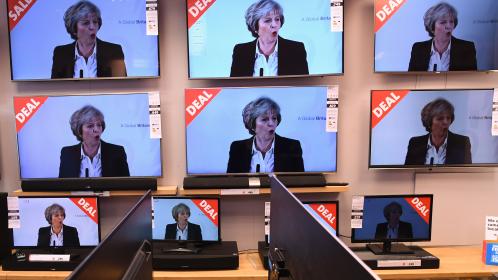
Tough line raises fears among big business
Senior business figures have raised concerns over Theresa May’s vow to pull Britain out of the single market, but welcomed the “clarity” she gave over her plans for Brexit.
While there was praise for her ambitions to secure a comprehensive trade deal with Europe, there were also concerns about the prime minister’s pledge to walk away from the negotiations should the remaining EU members come up with a “bad deal” designed to punish Britain.
Such a deal would leave Britain reliant on World Trade Organisation (WTO) rules for trade, which would include the imposition of tariffs.
The prime minster issued the warning as she set out details of her preferred Brexit deal in a speech in London today. She said that her desire to control EU migration would inevitably end the UK’s membership of the single market.
Carolyn Fairbairn, director-general of the CBI, raised a note of caution. “Today the prime minister changed the landscape,” she said. “Ruling out membership of the single market has reduced options for maintaining a barrier-free trading relationship between the UK and the EU. But businesses will welcome the greater clarity and the ambition to create a more prosperous, open and global Britain, with the freest possible trade between the UK and the EU.
“The pressure is now on to deliver these objectives and achieve a smooth and orderly exit.
She added: “Businesses want to make a success of Brexit but will be concerned about falling back on damaging WTO rules. They stand ready to support the negotiations to get the best possible deal for the UK by ensuring that the economic case is heard loud and clear.”
Dame Inga Beale, chief executive of Lloyd’s of London, said that the insurance company would continue plans to open a subsidiary office within the EU’s single market.
“What we need is the licensing and the regulatory ability to be able to provide insurance to the EU customers that we have,” she told the BBC. “Without access to the single market we are not going to be able to continue to do that for some of our business from London as we have done, traditionally, for many years.”
Allie Renison, of the Institute of Directors, also welcomed the clarity over Britain’s future outside the single market. “We now know that we will be leaving the single market, and while there will be firms who regret this, they will at least be able to plan on that basis,” she said.
The speech was praised by pro-Brexit Tories. Dominic Raab, a former minister, said: “This is a detailed and positive plan for an ambitious post-Brexit Britain. As an independent, self-governing democracy, we want to be a firm friend to Europe, but a global player with the broadest horizons. It’s time to turn the page from the referendum and unite as a country, so Britain can go from strength to strength.”
Keir Starmer, the shadow Brexit secretary, said that the prime minister’s threat to walk away from talks and turn Britain into a low-tax haven “would be an act of huge self-harm for the UK”.
Nick Boles, the Tory moderniser and former minister, called on liberal Conservatives to accept that Britain would be leaving the single market.
“We need to be utterly unsentimental in our assessment of our political strengths and weaknesses when set against the strengths and weaknesses of those who would like to see a new relationship with our European partners that is less liberal, less open and less engaged,” he wrote on the ConservativeHome website.
“We need to choose political ground that we can easily defend and from which we can credibly and persuasively attack the more extreme positions of the small but noisy Little Englander element in our party, and beyond.
“If we try to fight for continued membership of the single market, and the obligations that entails, we will be picking ground that is impossible to defend.”






